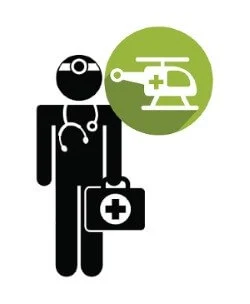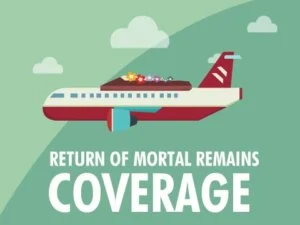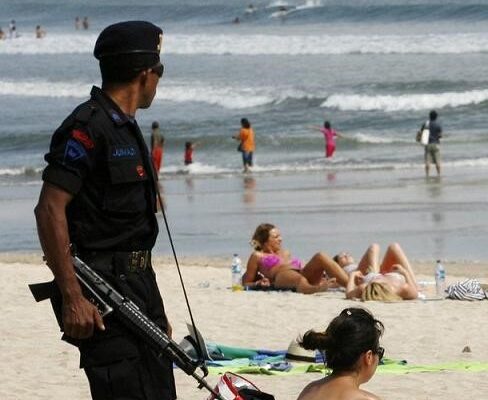No one plans to die on a vacation! We have learned to take precautions that will keep sickness and death at bay. We know to pack handwipes for cruising and OTC meds while traveling in Europe, Asia and Africa. We have been alerted to avoid contaminated water and reused water bottles, date rape drugs, and sharing too much personal information with strangers. We know to keep our cell phones charged and to let friends and family know where we are by forwarding copies of our itineraries to them and constantly staying in touch through WhatsApp and Facebook.
Countries with Most American Deaths

Regardless of our preparation and caution, disasters happen, and then we are in deep trouble if we have not pre-planned adequately. One way to avoid death on vacation is to carefully select the destination. Death of Americans was highest in Mexico between July 2014 and June 2015, followed by Thailand, Costa Rica, the Philippines, and the Dominican Republic.
Dying on vacation has become a trending topic because of the recent deaths of Americans in the Dominican Republic (DR). Between August 2018 and June 21, 2019, 10 deaths of Americans have been reported. This does not include the deaths of Orlando Moore and Portia Ravanelle who disappeared on their way to the airport after their DR holiday. Authorities in the DR attributed their demise to a road accident.
In 2018, tourism represented more than 17 percent of the DR economy, according to the World Travel and Tourism Council (WTTC). Approximately 6.5 million tourists visited the DR in 2018, more than any other Caribbean nation (Caribbean Tourism Organization data). The United States accounted for 2.2 million of these tourists – more than any other country.
US State Department Advisory

As of April 15, 2019, the Trave.State.Gov website urged increased caution for travel to the Dominican Republic. The report raises the issues that focus on violent crime, including armed robbery, homicide, and sexual assault in the country. The country has introduced professional tourist police, and a 911 system in many parts of the country with a concentration in resort areas that tend to be better policed than urban areas like Santo Domingo. According to the US government site, “The wide availability of weapons, the use and trade of illicit drugs, and a weak criminal justice system contribute to a high level of criminality on the broader scale.”
What To Do

Travel Insurance
People are traveling more than ever and while some will cancel or postpone plans in light of current situations, many continue to move their travel plans forward. In order to prepare for misadventure, I queried travel insurance expert, Stan Sandberg, co-founder of TravelInsurance.com.
According to Sandberg, “Policies with DR as the primary destination purchased year to date are up close to 50 percent over the same period… In particular, this month, policies sold with DR as primary destination are up over 75 percent over the average for the prior three months.”
What Does Travel Insurance Protect?

Sandberg reminds travelers that travel insurance… “does cover trip cancellation and interruption for a wide range of covered reasons, from unexpected illness to hurricanes; however, it will not provide trip cancellation protection for travelers having second thoughts about their DR trips due to fear of the recent deaths and illnesses.”
Sandberg suggests that travelers who booked their travel within the last 7-21 days may be able to purchase a travel insurance plan with an option “Cancel for Any Reason” upgrade, allowing cancellation 48 hours or more prior to departure for a partial reimbursement. This is not available for residents in the state of New York, and there may be additional requirements.
Travel insurance will provide coverage for travelers who experience certain hardships while enroute. A travel insurance plan with emergency travel medical and/or emergency medical evacuation could provide coverage if the plan holders become ill while in the DR.
Insurance Will/Will Not Cover
- If you get very ill on your trip and need intensive medical attention in the country you are visiting, what insurance do you need to have?
Sandberg stated: “Travel medical coverage can provide protection if you need additional attention while traveling. Travel medical coverage pays for hospital and medical expenses due to an unforeseen injury or illness while traveling.”
“Typical coverage pays for ambulance service, treatment by doctors and nurses, and most hospital costs. This includes surgery, medical tests, anesthesia, and prescription drugs. Emergency medical coverage may also cover sudden dental emergencies such as a lost filling or broken tooth.”

- When the country being visited finally stabilizes you and you are able to return to your home, what insurance should you have to cover air ambulance services?
Sandberg stated: “In extreme cases, emergency evacuation coverage pays for the emergency transportation to get you to a medical facility should you find yourself in a location that can’t treat you. Medical costs can quickly add up to thousands or tens of thousands of dollars. Emergency evacuations can cost ten times that. In addition to the financial coverage for a medical emergency, almost all travel insurance plans over 24/7 global assistance to help you (and/or your traveling companions) navigate the health care system and actually coordinate treatment with the doctors and hospitals.”
- If you die on your trip (through no fault of your own and/or your criminal act), what insurance do you need in order for your body to be returned home (and accompanied by friends/family)?

Sandberg stated: “Repatriation coverage means that the insurer will arrange and handle the necessary transportation in the event a person passes away from an illness or injury when away from home. This benefit typically covers the arrangement and payment for necessary and reasonable expenses which include embalming and the appropriate transportation of the deceased’s body to the proper location via the most direct route.”

Know Before You Go
“Expect the best, plan for the worst, and prepare to be surprised.” – Denis Waitley

Plan your trip. Know where to go and places to avoid. Most of the world is relatively safe for the average traveler. Straying from tourist areas may lead to adventures not included in tour guide books, and this is when danger enters the equation. Wherever you are, it is best to be vigilant – scammers and thieves are on the prowl, especially near beaches, airports, and train stations.

Avoid driving in areas where you are not fluent in the language and road conditions may not meet your expectations. In many parts of the world, roads and traffic patterns can be dangerous and unpredictable. It is advisable to reserve a reputable tour company or hire a private driver (recommended by your hotel, your travel agent, or friends) to guide you through areas when reliable public transportation is not available.

Avoid any and all contact with drug dealers and prostitutes. This may seem obvious, but cab drivers and friendly beach vendors can offer drugs in exchange for cash. While it might seem like a harmless exchange at the moment, legal systems in many countries make purchase and/or use of drugs very serious offenses, and police and the judicial systems come down hard on anyone suspected of possession and/or sale. Spending the next few years in a foreign jail is not the best way to journal a holiday.
Prostitutes should be avoided! Although it might be legal in the country being visited, tourists are vulnerable and predators are always vigilant – waiting to pounce on the unsuspecting visitor.
For additional information, go to travel.state.gov.
© Dr. Elinor Garely. This copyright article, including photos, may not be reproduced without written permission from the author.




